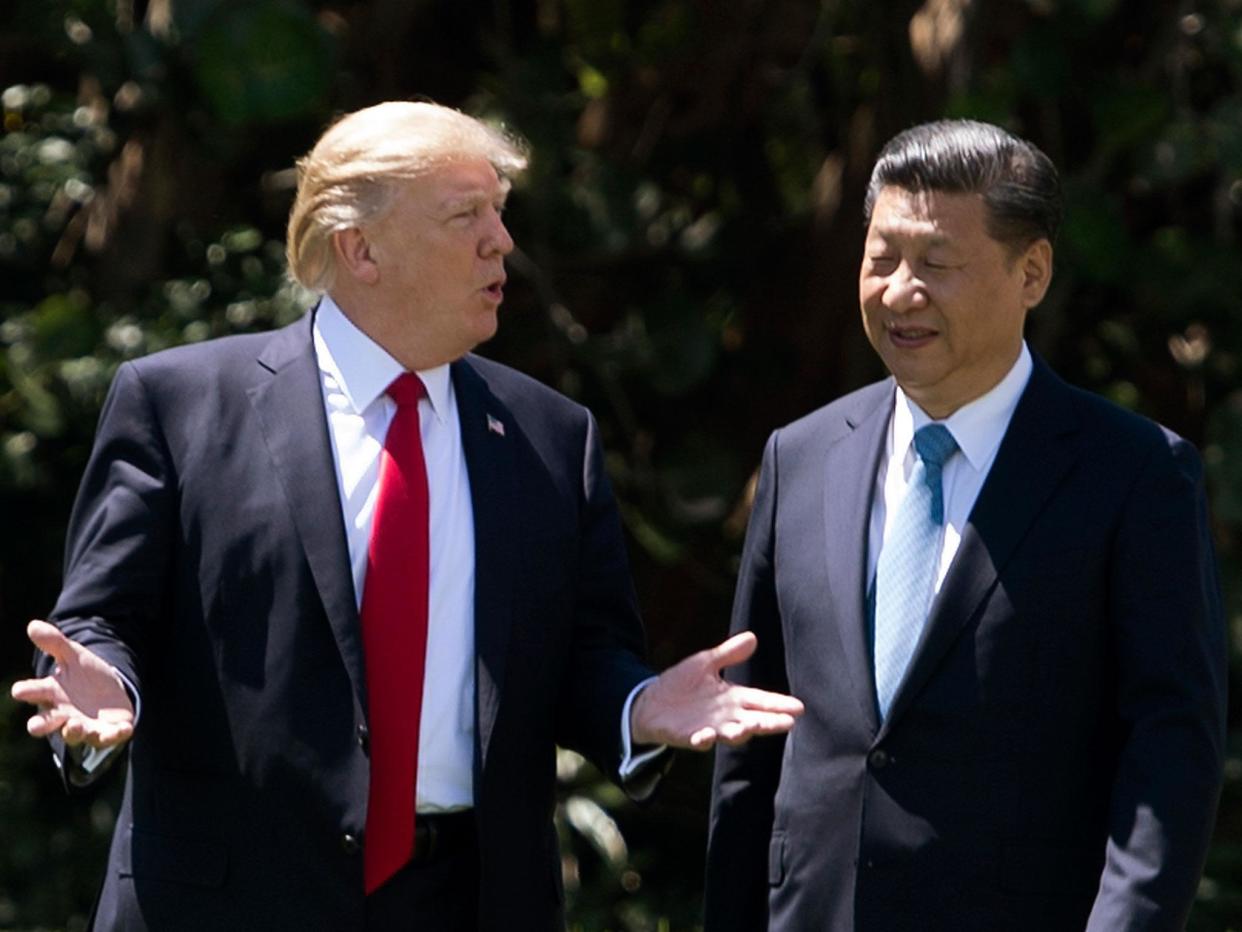Donald Trump seems happy to destroy the planet. Only China and India can save us now

Earlier this year Donald Trump received a personal letter urging him not to withdraw the US from the 2015 Paris Agreement on climate change.
If the US pulled out, the letter said, it would lose a seat at discussions and could not make a case for “the most cost-effective greenhouse gas reduction options”.
Another voice in his ear said the US would weaken its own hand by “basically uninviting itself” from a number of negotiating tables.
If Trump does this, rejects climate change, abandons our commitments, gives up on US leadership, the damage of 2016 will be incomprehensible https://t.co/5TFIRQESkM
— Jon Lovett (@jonlovett) May 28, 2017
Those urging Mr Trump to stick with the agreement made by Barack Obama were not long-haired greenies or earnest activists. Rather, they were the chief executives of ExxonMobil, the world’s largest listed oil company, and Royal Dutch Shell. For they see the danger of the world’s most powerful nation not being present. Trump, apparently does not.
During his election campaign, the Republican candidate dismissed climate change science as a “hoax” and suggested it had been invented by the Chinese.
Having got it in the ear last week from G7 leaders urging him to stick with the accord, Trump’s aides said his thinking on the topic was evolving. Then once he was back in Washington, it was reported Trump had told three associates he planned to pull out of the agreement after all.
Trump believes sticking with Obama’s emissions targets will hurt business; climate experts say the implications of Trump’s decision are of an existential scale.
The Associated Press recently spoke to two dozen climate scientists and consulted a computer model designed to predict the potential impact of climate change. It found that Trump’s move would make a bad situation markedly worse and make it harder to stop the world crossing a perilous global temperature threshold.
The calculations suggested it would result in the release of an additional three billion tons of carbon dioxide every year, melting ice sheets more quickly, raising sea levels and triggering more extreme weather.
“If we lag, the noose tightens,” said Princeton University climate scientist Michael Oppenheimer.
In another development, Trump’s rejection of the Paris Agreement would cede the US’s lead on confronting climate change to other nations, most notably China and India.
For many years, the world’s two most populous countries were seen as a block to progress on any global deal, insisting that developing nations should not be held to the same rules as countries in the West which, which had for decades benefited from CO2-emitting industrialisation.
But things have changed. China, which along with the US produces 44 per cent of the world’s carbon dioxide, agreed to talks with Obama that led to the 2015 Paris Agreement. Obama said the US would cut emissions immediately, with a target of 28 per cent by 2025, while Xi Jinping said China would seek to ensure its emissions peaked by 2030 and then fell.
Since then China has stepped up its game. Earlier this year, speaking at the World Economic Forum in Davos, Switzerland, Xi said the Paris accord was hard-won. “All signatories should stick to it instead of walking away from it, as this is a responsibility we must assume for future generations,” he said.
India, the world’s third largest overall producer of carbon dioxide – though not per capita – has also made striking progress. The nation expects to get 40 per cent of its electricity from non-fossil fuel sources by 2022, eight years ahead of schedule.
Indeed, according to data released recently at a UN climate meeting in Germany, China and India should both easily exceed the targets they set for themselves in the 2015 Paris Agreement.
“Five years ago, the idea of either China or India stopping – or even slowing – coal use was considered an insurmountable hurdle, as coal-fired power plants were thought by many to be necessary to satisfy the energy demands of these countries,” said Bill Hare, of climate science not-for-profit Climate Analytics. “Recent observations show they are now on the way toward overcoming this challenge.”
European leaders were little short of furious with Trump over his climate change stubbornness. German Chancellor Angela Merkel said discussions “had been very difficult, and not to say very unsatisfactory”.
French President Emmanuel Macron felt the need to underscore the severity of the situation by shaking Trump’s hand with such intensity that his knuckles went white. He later said it was “a moment of truth” designed to show that he was not a pushover.
None of this appears to have mattered to Trump. He seems set to pull the US out of an agreement most others nations consider essential to the planet’s survival.
The best hope may now lie with the very people Trump once mocked as hoaxers.

 Yahoo News
Yahoo News 
